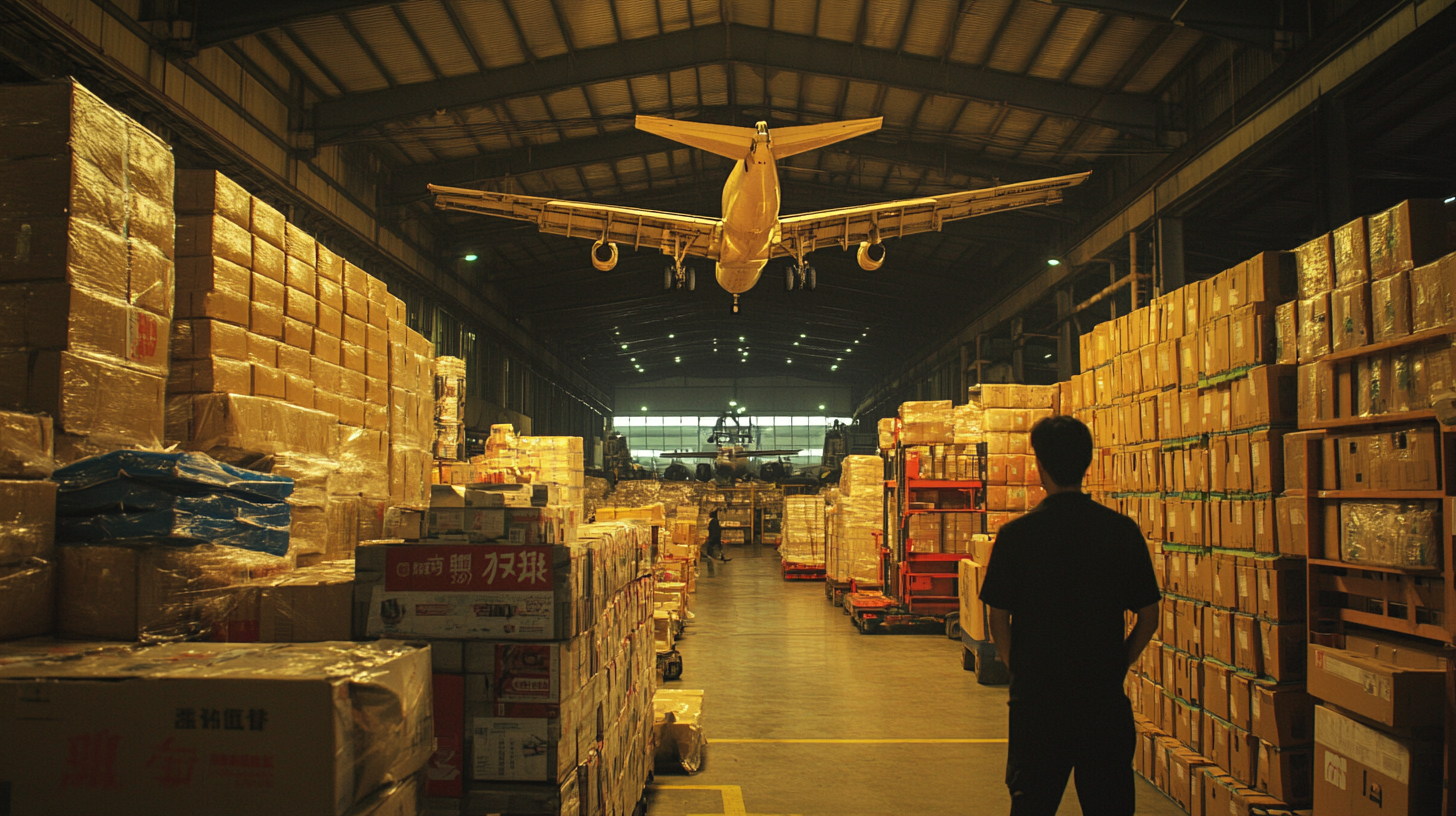In the complex arena of global commerce, the procurement of specialized equipment like the "Air Fork 24" demands not only strategic insight but also a thorough understanding of international trade standards. According to a report from the International Trade Centre, the global lift truck market is projected to reach $21 billion by 2026, growing at a CAGR of 5.2%. This remarkable growth underscores the importance of adhering to defined trade regulations and standards, particularly for essential machinery such as the Air Fork 24, which is pivotal in enhancing operational efficiency and safety in various industries.
Navigating the myriad of regulations can be daunting, as businesses must ensure compliance with both local and international standards. The World Trade Organization’s recent findings highlight that strict adherence to trade standards can alleviate barriers and facilitate smoother cross-border transactions. For companies involved in the procurement of equipment like the Air Fork 24, understanding the key trade dynamics and strategies is crucial not only for compliance but also for leveraging competitive advantages in the marketplace. As businesses strive to optimize their procurement strategies, a robust framework for navigating these international trade standards becomes imperative for success.

Understanding international trade standards is crucial for businesses involved in the procurement of specialized equipment like Air Fork 24. The global market for heavy machinery and equipment is projected to reach approximately $10 trillion by 2025, with international trade policies significantly influencing procurement strategies. Compliance with standards set by organizations such as the International Organization for Standardization (ISO) and the American National Standards Institute (ANSI) can enhance product quality and safety, minimizing potential risks during international transactions. Importantly, when engaging in Air Fork 24 procurement, companies must consider the varying standards across different regions. For instance, the EU has stringent regulations regarding machinery to ensure safety and efficiency, while the United States follows its own set of guidelines. According to a report by Allied Market Research, adherence to these international trade standards can reduce operational disruptions by up to 30%. This not only fosters smoother supply chain processes but also optimizes overall operational costs. Furthermore, understanding international trade standards aids in negotiating better terms with suppliers. Research by McKinsey & Company highlights that companies that align themselves with global standards see about a 15-20% reduction in procurement costs due to enhanced supplier relationships and reduced compliance-related delays. Hence, a well-informed procurement strategy that incorporates international standards is vital for enhancing competitiveness in the Air Fork 24 market.

In the realm of international trade, adhering to compliance standards presents significant challenges for companies involved in the procurement of Air Fork 24 components. With global supply chains traversing diverse regulatory environments, sourcing practices must align not only with local laws but also with international frameworks. According to a report by the International Trade Centre, 60% of companies experience disruptions due to non-compliance issues, emphasizing the critical need for organizations to navigate these complex requirements effectively.
One of the primary compliance challenges in Air Fork 24 sourcing is the variation in quality standards across countries. For instance, the ISO 9001 certification is recognized worldwide; however, many regions implement additional regulations, such as the European Union's CE marking and RoHS directives. A recent study by Deloitte revealed that businesses involved in transnational procurement face up to 40% higher compliance costs if they fail to comprehensively understand these local and international standards. This financial burden can strain resources and impact overall competitiveness.
Furthermore, the rapid evolution of trade policies, particularly in the wake of geopolitical changes, complicates the compliance landscape. Companies must stay abreast of tariffs, export controls, and trade agreements that can affect sourcing strategies. A report from the World Trade Organization indicated that over 80% of trade barriers are now non-tariff in nature, thus demanding a more nuanced approach to compliance. Organizations are increasingly turning to advanced compliance management systems to automate and streamline the procurement process, ensuring they meet both industry standards and regulatory requirements while minimizing operational disruptions.

In navigating international trade standards for Air Fork 24 procurement, it's essential to analyze the global market trends that are reshaping procurement strategies across various sectors. With the pet industry projected to exceed $83 billion in 2024, as highlighted in the recent comprehensive analysis, there is a clear shift towards omnichannel growth fueled by the influence of Gen Z consumers. Their preferences for sustainable and specialty pet products are driving suppliers to adapt quickly, presenting both opportunities and challenges for procurement teams looking to align with these evolving market dynamics.
Simultaneously, the Military Balance 2025 report indicates heightened procurement activities in defense, with many nations ramping up their defense spending to address geopolitical tensions. This trend underscores the necessity for procurement departments to consider international trade standards, ensuring compliance and readiness to engage with a more competitive global marketplace. Similar patterns are observed in the engineering and construction sector, where a 12% increase in gross output reflects strong industry fundamentals. This growth signals an urgent need for procurement strategies that are agile and responsive to shifts in market conditions.
To remain competitive, stakeholders must leverage data-driven insights from industry-specific reports, such as the anticipated trends in the Glucuronolactone market, which have been significantly influenced by the COVID-19 pandemic. As these sectors evolve, a nuanced understanding of global market trends will be critical for maximizing the effectiveness of Air Fork 24 procurement strategies, ensuring alignment with both regional and international standards. Through diligent analysis and adaptation, companies can navigate the intricate landscape of global trade successfully.

Ensuring quality and safety in the production of Air Fork 24 necessitates a thorough understanding of the international trade standards and best practices that govern this sector. According to the recent report on food safety and quality in the supply chain, adherence to standardized protocols can drastically reduce the risks associated with product recalls and compliance failures, which have historically cost companies millions. For instance, implementing Hazard Analysis Critical Control Point (HACCP) principles can improve safety outcomes by 50%, underscoring the importance of a proactive approach in procurement strategies.
In addition to establishing solid safety measures, manufacturers must prioritize sourcing raw materials from certified suppliers who comply with international safety standards. A survey conducted by the International Trade Centre revealed that 60% of procurement professionals recognized the significance of having well-documented supplier quality management systems in their selection criteria. This practice not only ensures a consistent quality of Air Fork 24 components but also fosters trust in the supply chain, ultimately leading to enhanced consumer confidence.
Moreover, continuous training of staff on best practices for quality management further contributes to a safe production environment. The World Health Organization recommends regular training sessions that focus on compliance with local and international standards. By investing in workforce education, companies can ensure that their employees are well-versed in the latest safety protocols, which has been shown to enhance overall product quality by as much as 30%. This commitment to quality and safety not only meets regulatory requirements but also strengthens a company's position in the competitive landscape of international trade.
In the evolving landscape of international trade, procurement strategies for specialized equipment such as Air Fork 24 are becoming increasingly reliant on technology. The integration of advanced software solutions and data analytics has the potential to significantly streamline supply chain management, driving efficiency and reducing costs. According to a report by Deloitte, companies that implement digital supply chain technologies can achieve a 20-30% increase in operating margins, underscoring the crucial role that innovation plays in competitive procurement.
Leveraging technologies like artificial intelligence and machine learning allows organizations to forecast demand more accurately, optimize inventory levels, and improve supplier relationships. A survey conducted by Gartner indicates that 75% of supply chain leaders plan to increase investments in digital technologies over the next three years, highlighting a strong commitment to enhancing operational capabilities. For Air Fork 24 procurement, this could mean better alignment with international trade standards and regulations, reducing the risk of compliance issues, and ensuring that procurement activities align with global best practices.
Moreover, adopting cloud-based platforms facilitates real-time collaboration among stakeholders across the supply chain. This transparency not only accelerates decision-making but also enhances responsiveness to market changes. According to a McKinsey report, digitization of supply chains can lead to a 50% reduction in lead times, a game changer for procurement teams looking to maintain agility in a volatile marketplace. By embracing technological advancements, businesses can not only navigate the complexities of international trade standards but also position themselves strategically for future growth in Air Fork 24 procurement.
